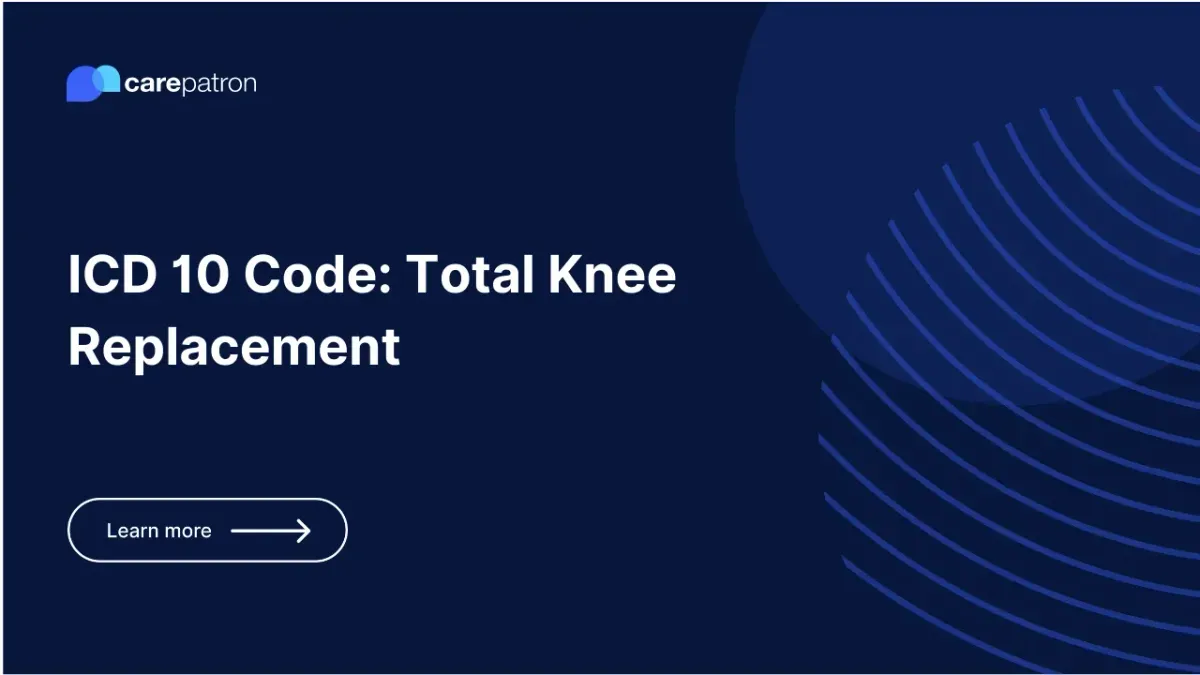
Total Knee Replacement ICD-10-CM Codes
Get the most complete and up-to-date list of ICD-10 codes for total knee replacement surgery.
Use Code
Commonly asked questions
These codes signify a total knee replacement procedure in a patient's medical history, serving billing and reimbursement purposes.
The listed ICD-10 codes are billable and indicate that the patient received a total knee replacement procedure.
Treatment for total knee replacement diagnosis codes includes surgery (total knee arthroplasty), physical therapy, medications, and injections. The specific treatment depends on the specificity of the patient's condition and should be discussed with the doctor.
EHR and practice management software
Get started for free
*No credit card required
Free
$0/usd
Unlimited clients
Telehealth
1GB of storage
Client portal text
Automated billing and online payments
